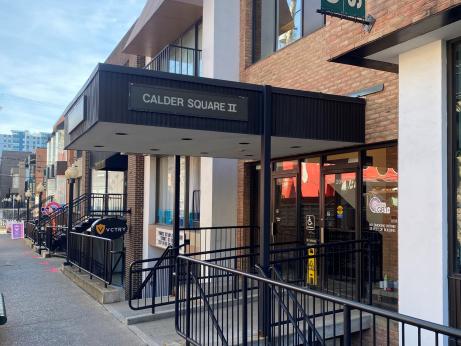How to change your name in Pennsylvania
Learn general information about how to change your name as an adult in Pennsylvania and how to navigate the process in Centre County, Pennsylvania. The guide provides only general information and instructions. It does not provide legal advice and is not a substitute for consulting with an attorney.
-
Pennsylvania law permits the informal change of name as long as it is not used to defraud creditors or anyone else. If you adopt a new name, you must use it consistently, nonfraudulently, and exclusively.
There is no cost or time investment to an informal name change, but generally you cannot get key documents (driver’s license, social security, etc) changed with an informal name change.
Penn State allows students to use a chosen name in place of or in addition to a legal name as long as the purpose is not to avoid legal obligations or for misrepresentation. The policy and procedure for requesting use of your chosen name is found in Penn State Policy AD84.
-
Marriage, divorce, and adoption can all lead to documents that can be used to effectuate a name change, but, in most cases, without all the requirements and expense of a formal name change petition. After a marriage, a certified copy of the marriage certificate can be used to change a spouse’s surname on documents. At any time during the pendency of a divorce action, or after the final divorce decree is issued, a spouse can elect to resume a prior surname with a simple request to the court, called a praecipe, and payment of a small fee. In an adoption proceeding, a name change can be requested in the adoption petition. If granted, the name change order is typically part of the final adoption decree.
If you have one of these documents, you can skip down to the “Changing Documents” section for links to common documents used in name changes.
-
A formal name change through the courts is used when you want to change your official documents to reflect the new name you have chosen. You can change any part of your name, such as just your last name, or you can change all of it and choose an entirely new first, middle, and last name.
There are a few reasons you can’t get your name changed: to avoid creditors, to commit fraudulent acts, or if you are convicted felony (with some exceptions).
There is also a general public policy requirement. Names like @#!%, 08935, Jesus Christ, and Adolf Hitler could be prohibited by the court as being against public policy.
The court is not allowed to refuse a name change for an individual seeking a name change as part of a gender change unless it finds that the name change is really being sought for one of the prohibited reasons. In Re McIntyre, 715 A.2d 400 (Pa. 1998).
Note that the law specifically provides an exception to the requirement of publication if you can show that publication would jeopardize your safety. If that is shown, the court can waive the publication requirement and seal the file.
-
A formal name change requires that you make a formal request to the court. This is called a petition. Your petition will have several parts: confidential information certification form, civil cover sheet, cover page, petition, two draft orders, and a draft notice.
The civil cover sheet is used by the court’s administrators to track the numbers and types of cases that are filed in the various courts. It must be submitted with any new civil filing.
The confidential information certification form is used to certify to the court that your petition does not include any confidential or sensitive information such as social security numbers, financial account numbers, driver’s license numbers, state identification numbers, or minors' names and dates of birth. If you are applying for the name change of someone under the age of eighteen, see a lawyer to discuss how to handle information about the minor in the petition.
When you have the documents all ready to go, sign the petition and make an extra copy.
-
Fingerprinting is available at no charge for Penn State University Park students who are seeking name changes.
The service is available by appointment only; contact the Penn State University Park Campus Police. They are located in Eisenhower Parking Deck.
For students residing outside Centre County, fingerprints can generally be obtained from your local campus police, local police or local sheriff. If none of these agencies are equipped to provide fingerprints for a name change, the State Police will usually provide the service. Most agencies charge a small fee.
-
You will have to pay a filing fee to file your petition. The Prothonotary doesn't take credit cards, so make sure you have cash, cashier’s check, money order or a personal check. Checks should be made payable to the “Centre County Prothonotary”. Filing fees change periodically; up-to-date filing fees can be found on the Prothonotary’s website.
-
The “Prothonotary” is just a fancy name for the court’s filing office. This is the place where you file everything from steps 1-3, when you have them ready. It is located at Prothonotary, Centre County Court of Common Pleas, 102 South Allegheny Street, Bellefonte, Pennsylvania.
When you get to the Prothonotary:
- Ask to file the document.
- Give them the original petition and the copy that you made. They will assign your case a docket number. This is how they keep track of cases.
- Give them the original fingerprint card. They will not accept the filing without this document.
- Pay the filing fee.
- They will give you a receipt for your payment and the copy of your petition with a stamp on it that shows the date and time it was filed.
-
The Prothonotary will forward your petition to the court administrator. The court administrator will coordinate with a judge to issue an order scheduling a hearing and publication notices.
Provide the publication notices to two newspapers of general circulation or one newspaper and the Centre County Legal Journal. We typically publish the notices in the Centre Daily Times and the Centre County Legal Journal. Publication is at your expense and the Centre County Legal Journal requires payment in advance.
The court will require that you submit an actual copy cut out from each of these publications at your hearing. The newspapers will typically send you a proof of publication with the cut out ad attached to an affidavit. Bring the original of both of those to the hearing.
If you are concerned that publication of your name change could jeopardize your safety, you may file a Motion to Waive Publication asking the court to waive the publication requirement. The motion should be filed with your name change Petition. A judge will review your motion and decide whether to grant or deny your request.
-
The name change statute prohibits you from changing your name to avoid creditors. To make sure no one sneaks one by the court, everyone who asks for a name change must provide proof of financial standing to the court by providing an official judgment search.
The Prothonotary does the judgment search. There is a small fee for the search (The exact amount varies based on the number of pages the search generates, but it is usually under $10).
Searches are typically ordered the day before or the day of the scheduled hearing. Check with the Prothonotary's Office for up-to-date information on when and how to order these searches.
You are required to submit the judgment search from every county where you have lived for the past five years. If you've lived in counties other than Centre County, you'll need to contact those filing offices. They typically require that you make the request in writing, accompanied by payment. If you need proof from other counties, start early. It can take several weeks to get the documentation.
As of July 12, 2024, the Centre County Court no longer requires a mortgage search performed by a county Recorder of Deeds Office to establish you have no judgments, decrees of record, or other similar matters in your current legal name. Some counties still require this search, so you should consult with an attorney who practices in the county that you are filing the Name Change Petition if it is required.
-
Appear at the scheduled hearing. Remember that you may need to stop by the Prothonotary offices before the hearing to pick up your judgment searches.
Bring with you:
- The two original proofs of publication, and
- All of the documents you gathered showing proof of financial standing, e.g., the judgment search.
If you don’t have an attorney, you are still responsible for presenting your case and following the rules of the court. For most name change petitions, the court proceeding is pretty informal. But the judge might have concerns about the name change, so be prepared to present the good reasons why your request should be granted.
If the judge signs your order, the court will provide you with five certified copies of the order. You can order more for a fee.
-
Once you get the order, you still need to change your name on important documents such as:
- Social Security Card
- Driver’s license
- Vehicle title and registration
- Passport
- Your Penn State record
If you also need to change your gender marker, the standards for what is required vary by agency. The National Center for Transgender Equality provides state-by-state information to assist individuals with changing their names and gender markers on various identification documents.
-
As the name change law is a state law, the process will be very similar across Pennsylvania. Student Legal Services can help students who qualify for services to navigate the process in their home county. Many counties have 'self-help' centers that provide detailed forms and instructions for the name change process.
Laws in other states may be very different. Consult an attorney in your home state.
Student Legal Services can help
The Office of Student Legal Services is a student-activity fee funded law office which provides free legal assistance to Penn State students at University Park. We offer advice, representation, and/or referral services in many legal matters affecting students.
We can help with name changes!



